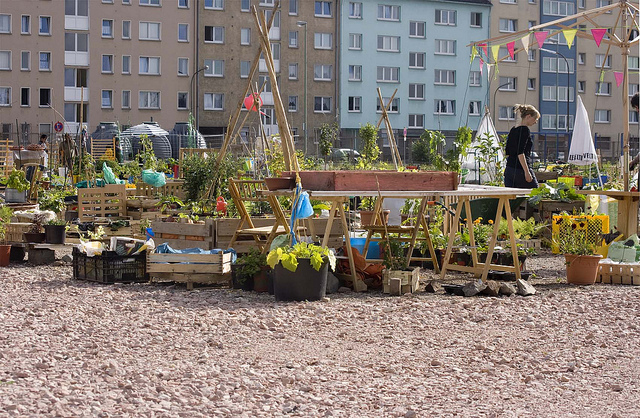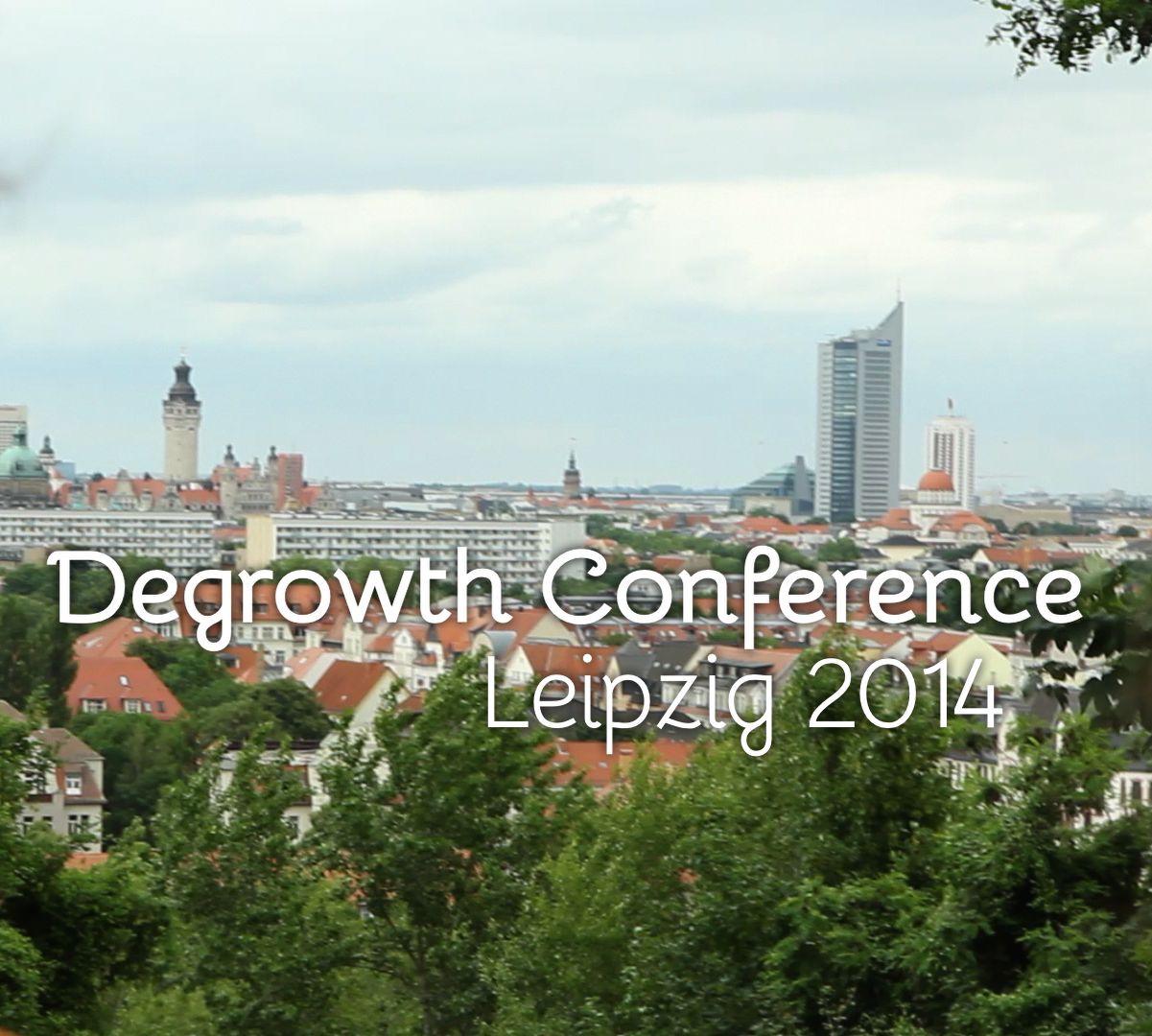Interview with Christine Bauhardt
Prof. Dr. Christine Bauhardt is professor for Gender and Globalization at the Humboldt University in Berlin. Her main research interests are society-nature-relations and gender relations, feminist critique of the economy as well as migration and urban development. She took the time to answer our questions for the interview-series of the Stream towards Degrowth. Imagine we're living in the future, say in the year 2030, in a time of well-being. Humanity enjoys a good life beyond economic growth. Let's look back at the last few decades. 1. In what respect did society depend on growth? Economic growth at that time was fostered by the demand for conspicuous consumer goods, e.g. cars and clothes. The German car manufacturing was the leading sector for expensive and petrol consuming vehicles. They were bought by affluent male car drivers wanting to display wealth and power. The demand for clothes, either cheap or expensive, was driven by the fashion industry and ideas about female beauty and attractiveness. 2. What obstacles impeded a turning away from economic growth? Turning away from economic growth would have meant dealing with projections about social gender norms and gendered desires. Consumer goods do not only satisfy basic needs. They very often compensate for hidden psychic impulses. Therefore, appeals to less, but more deliberate consumption often remain vain. 3. How did your actions contribute to a society beyond growth? I have always been leading a hedonistic lifestyle. Everyday, I chose which mode of transportation met best my travel needs and provided me with most pleasure. In the sunshine I cycled to my workplace, in the rain I travelled by public transport using the time to read the newspaper. I have ever been passionate about good food and I love cooking so I have been shopping at my local farmer’s market as often as possible. Time affluence has always been of great value to me. 4. From your point of view, what does well-being imply in a society that consciously chose low production and consumption levels? Well-being in this sense would imply for me satisfying and reliable social relations. In a society in which commodities are less available by financial means, economic and social security depends largely on the individual capacity to construct and maintain personal relationships. This is time-consuming and can comprise power relations. In the current debate, I think, these aspects are not enough reflected on. 5. Which signs for a world beyond growth did you already notice in 2013? In 2013, the financial crisis was the most obvious sign that economic growth serves the mighty and wealthy and disempowers the majority of people. A world beyond growth in 2013 looked more like a dystopia of inequality and injustice than a happy and socially rich degrowth society. Economic degrowth had to be coupled with political democracy in order to develop a new vision of prosperity.
The 2nd Degrowth Summerschool will take place on the Climate Camp in the Rhineland from the 19th to the 23rd of August 2016. “Skills for System Change“ will be the motto of a diverse programme dealing with alternatives to the current economic system. Right after the Summer School has ended, the Action Lab will take place from the 24th to the 29th of August. Melanie and Milan, who are involved i...

On the Need for Collaboration Between Social Movements and Activisms Not that long ago, I left North America and arrived fresh and starry-eyed in Lund, Sweden, ready to begin my master’s degree in a program entitled Culture, Power and Sustainability. In my second year, I decided to write my thesis about the Transition Town movement, a social movement out of Great Britain born of the need to ac...

In order to make our conference a truly democratic and inclusive event, we have started an exciting crowdfunding-campaign. It will run for 55 days and ends shortly before the conference. Our goal is to enable as many people as possible to participate in the conference and to contribute to a change towards a society beyond the imperative of economic growth. In order to achieve this, however, we...